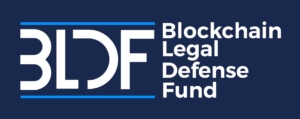The Role of Smart Contracts in Regulatory Compliance
Smart contracts have revolutionized blockchain technology by enabling automated, transparent, and tamper-proof agreements. Beyond their technical appeal, these self-executing digital contracts are playing an increasingly important role in regulatory compliance. By embedding rules and conditions into code, smart contracts offer businesses a reliable way to adhere to complex regulatory requirements, reducing risks and improving efficiency.
What Are Smart Contracts?
Smart contracts are computer programs stored on a blockchain that automatically execute predefined actions when specific conditions are met. For example, a payment might be released to a supplier once goods are delivered and verified. These contracts eliminate the need for intermediaries, ensuring speed and trust in transactions.
Applications of Smart Contracts in Compliance
Anti-Money Laundering (AML) and Know Your Customer (KYC)
Smart contracts can automate the enforcement of AML and KYC protocols by verifying user credentials before allowing transactions. For example, a financial institution can use smart contracts to block transactions from unverified users.
Tax Compliance
Smart contracts can calculate and automatically deduct applicable taxes during transactions, ensuring compliance with local and international tax laws.
Supply Chain Regulations
In industries like pharmaceuticals and food, smart contracts ensure regulatory standards are met by tracking and recording every step of the supply chain on the blockchain.
Data Privacy Laws
Smart contracts help enforce data privacy regulations like GDPR by controlling access to sensitive information and ensuring it is used only for authorized purposes.
Benefits of Smart Contracts in Compliance
Automation and Efficiency
Smart contracts reduce manual intervention by automating compliance checks and reporting. This minimizes errors and accelerates processes.
Transparency
All transactions and actions are recorded on the blockchain, providing a transparent and auditable trail for regulators.
Cost Savings
By eliminating intermediaries and reducing administrative burdens, smart contracts lower the costs associated with regulatory compliance.
Global Accessibility
Smart contracts operate seamlessly across borders, making them ideal for multinational businesses navigating diverse regulatory landscapes.
Challenges in Using Smart Contracts for Compliance
Legal Recognition
Not all jurisdictions recognize smart contracts as legally binding. Businesses must ensure that their use complies with local laws.
Code Vulnerabilities
Errors or loopholes in the contract’s code can lead to unintended outcomes. Regular audits are necessary to ensure robustness.
Lack of Flexibility
Smart contracts execute exactly as coded, leaving little room for adjustments or exceptions, which can be challenging in dynamic regulatory environments.
Integration Issues
Integrating smart contracts with existing systems and databases can be technically complex and costly.
Case Studies
DeFi and AML Compliance
A decentralized finance (DeFi) platform implemented smart contracts to enforce AML regulations by blocking transactions from wallets flagged for illegal activity. This reduced regulatory risks while maintaining user trust.
Supply Chain Transparency
A global logistics company used smart contracts to comply with customs regulations. The contracts automated document verification and duty payments, streamlining the import/export process.
The Future of Smart Contracts in Compliance
As blockchain adoption grows, the use of smart contracts for regulatory compliance will become more sophisticated. Emerging trends include:
Integration with Artificial Intelligence (AI)
AI can enhance smart contracts by analyzing real-time data and adapting to regulatory changes, making compliance more dynamic and efficient.
Cross-Blockchain Interoperability
Future smart contracts will work seamlessly across blockchains, enabling broader application in multinational regulatory environments.
Decentralized Identity Solutions
Smart contracts integrated with decentralized identity systems will provide secure and automated verification for users and transactions.
Smart contracts transform regulatory compliance by offering automation, transparency, and cost savings. While challenges remain, their potential to streamline complex regulatory processes makes them an invaluable tool for businesses operating in the blockchain ecosystem. Smart contracts will play an even greater role in ensuring compliance and fostering trust as technology advances.






Leave a Reply
Want to join the discussion?Feel free to contribute!